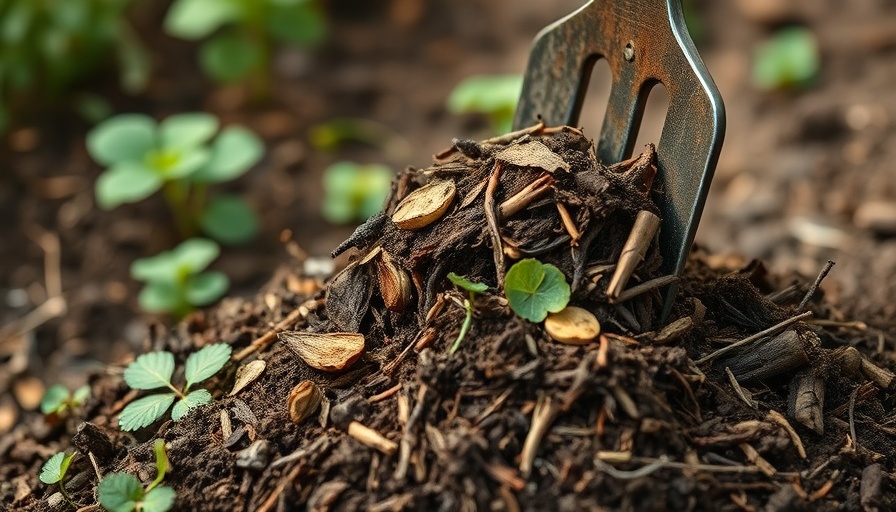
Unlocking the Secrets of Perfect Compost: An Eco-Friendly Journey
In today’s world, where sustainable practices are becoming a necessity, composting stands out as one of the most effective methods to enrich your garden soil while minimizing waste. If you're on a journey to start a backyard planting box in Muskegon, understanding how to create perfect compost is an invaluable skill.
Why Composting Matters
Compost is not just a way to recycle but a pathway to enhanced soil health. Adding nutrient-dense compost to your garden boosts soil structure, accommodating beneficial microorganisms that promote plant growth. The rich soil retains moisture and ensures healthy drainage, preventing root rot—a common problem for many gardeners.
Moreover, composting effectively redirects kitchen scraps and yard waste from landfills, thus contributing to a healthier community and environment. Whether you have kitchen leftovers or dried autumn leaves, they can all serve a purpose in your compost pile.
The Balance of Greens and Browns
One of the foremost secrets to achieving perfect compost is the careful balance of 'greens' and 'browns.' Greens, which include kitchen scraps and fresh garden clippings, add nitrogen to your compost. Contrarily, browns, like dried leaves and shredded paper, contribute carbon. A good rule of thumb is to maintain a ratio of roughly 3 parts browns to 1 part greens to keep odors in check and enhance decomposition.
Practical Steps to Great Compost
Creating your compost can be both fun and educational. Here are some practical insights:
- **Select the Right Bin**: Consider building a composting barrel in Muskegon; it’s efficient and space-saving.
- **Layering Matters**: Start with a layer of browns at the bottom, followed by greens, and repeat the layering to optimize airflow and decomposition.
- **Monitor Moisture**: Keeping your compost moist (but not soggy) is crucial. A good compost should feel like a damp sponge.
Future Trends in Composting
As more gardeners recognize the benefits of composting, we can anticipate a rise in community composting initiatives, making it easier for urban dwellers to contribute without needing extensive backyard space. DIY urban compost systems, such as compact bins and worm farms, will likely grow in popularity, empowering more homeowners to partake in sustainable gardening.
Challenges and Solutions
Despite its benefits, many face challenges in composting, from odors to pest attraction. Some practical solutions include:
- **Aeration**: Regularly turning your compost can help alleviate odors and speed up the decomposition process.
- **Ideal Ingredients**: Avoid composting meat, dairy, and oily foods to lessen pest attraction.
- **Education and Resources**: Utilize local resources, forums, or classes that discuss composting to further enhance your knowledge.
Making Informed Gardening Decisions
Understanding the nuances of composting can guide your gardening decisions. If you're planning to design a backyard utility house in Muskegon or construct elevated planter boxes for herbs, incorporate compost to ensure healthy growth in your planting projects.
Conclusion: Start Composting Today!
As you embark on your gardening journey, remember that creating rich compost is just as rewarding as the vegetables or flowers it helps produce. Your local lawn care experts at Norther-LawnCare.com are ready to support your DIY projects or lawn needs. Experience the joy of sustainable gardening, and let your efforts contribute to a greener environment. To kickstart your garden to life, contact Everett Lucas at 231-450-3414.
 Add Row
Add Row 
 Add
Add 


Write A Comment